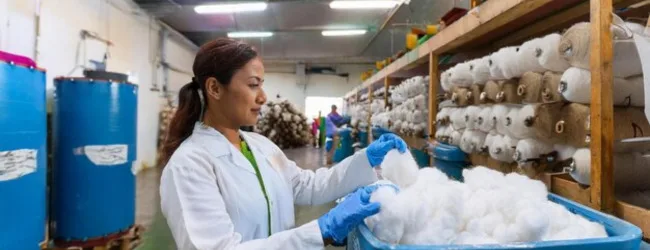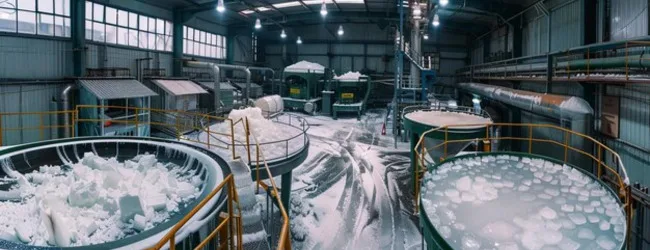Table of contents
- Why Start a Detergent Manufacturing Business? Advantages and Opportunities
- Essential Raw Materials for Detergent Manufacturing
- Important Considerations
- Phase 1: Planning and Research
- Phase 2: Legal and Regulatory Compliance
- Phase 3: Setting Up Operations
- Phase 4: Marketing and Sales
- Phase 5: Ongoing Management and Growth
- Need Expert Guidance?
- Conclusion
- Frequently Asked Questions (FAQs)
The Indian detergent market is booming, driven by increasing hygiene awareness and a growing middle class. Starting a detergent manufacturing business can be a lucrative venture, provided you have a solid business plan. This article provides a step-by-step guide to creating a robust business plan, ensuring your venture’s success.
Why Start a Detergent Manufacturing Business? Advantages and Opportunities

The detergent manufacturing sector presents several compelling advantages, especially in a growing market like India:
- Consistent Demand:
- Hygiene is a fundamental need, ensuring a stable and consistent demand for detergents.
- Even during economic downturns, cleaning products remain essential.
- The increasing awareness of sanitation, especially post-pandemic, has further amplified this demand.
- Large and Growing Market:
- India’s vast population and rising middle class create a massive market.
- Rural penetration of consumer goods is expanding, opening up new avenues for sales.
- The market is not saturated, allowing for niche products and innovation.
- Potential for High Profit Margins:
- With efficient production and strategic sourcing of raw materials, profit margins can be substantial.
- Developing your own brand and establishing a strong distribution network can further enhance profitability.
- Opportunities for Innovation:
- The market is receptive to new products, such as eco-friendly detergents, liquid detergents, and specialized cleaning solutions.
- Formulation and packaging innovations can create a competitive edge.
- Local Sourcing and Employment:
- Many raw materials can be sourced locally, reducing transportation costs and supporting the local economy.
- The business can create employment opportunities, contributing to social development.
- Scalability:
- The business can be started on a small scale and gradually expanded as demand increases.
- This flexibility allows entrepreneurs to manage risks and grow sustainably.
- Government Support:
- The Indian government promotes small and medium-sized enterprises (SMEs) with various schemes and subsidies.
- Initiatives like “Make in India” encourage local manufacturing.
Essential Raw Materials for Detergent Manufacturing

The specific raw materials required will vary depending on the type of detergent you plan to produce (powder, liquid, or bar soap). However, some common essentials include:
- Surfactants:
- These are the primary cleaning agents that reduce surface tension and allow water to mix with oil and dirt.
- Examples: Linear Alkylbenzene Sulfonic Acid (LABSA), Sodium Lauryl Sulfate (SLS), and Non-ionic surfactants.
- Builders:
- These enhance the cleaning power of surfactants by softening water and preventing dirt from redepositing.
- Examples: Sodium carbonate (soda ash), Sodium triphosphate (STPP), and Zeolites.
- Fillers:
- These add bulk to the detergent powder and improve its flow properties.
- Examples: Sodium sulfate and Sodium chloride.
- Bleaching Agents:
- These remove stains and whiten fabrics.
- Examples: Sodium percarbonate and Sodium hypochlorite.
- Foam Boosters:
- These increase the amount of foam produced by the detergent.
- Examples: Fatty acid alkanolamides.
- Fragrances and Colorants:
- These add aesthetic appeal to the detergent.
- Various synthetic and natural fragrances and colorants are available.
- Additives:
- These include enzymes, optical brighteners, and anti-corrosion agents.
- For Liquid Detergents:
- Water, solubilizers, and thickeners are also essential.
- For Bar Soaps:
- Fats and oils (vegetable or animal), caustic soda (sodium hydroxide), and fillers are required.
Important Considerations
- Quality: Sourcing high-quality raw materials is crucial for producing effective detergents.
- Cost: Balancing quality and cost is essential for maintaining profitability.
- Sustainability: Consider using eco-friendly and biodegradable raw materials whenever possible.
- Regulations: Adhere to all relevant safety and environmental regulations.
- Storage: Proper storage of raw materials is essential to prevent spoilage and contamination.
Step-by-Step Guide to Starting a Detergent Manufacturing Business in India
Phase 1: Planning and Research

- Market Research and Feasibility Study:
- Analyze the current market size, growth potential, and trends.
- Identify your target market (urban/rural, specific income groups, etc.).
- Conduct competitor analysis to understand their strengths and weaknesses.
- Determine the feasibility of your business idea, considering costs, potential revenue, and profitability.
- Develop a Detailed Business Plan:
- Write an executive summary, company description, market analysis, product/service details, marketing and sales strategy, operational plan, 1 management team description, and financial projections.
- Include a contingency plan to address potential challenges.
- Decide on the Product Range:
- Choose the types of detergents you want to produce (powder, liquid, bar soaps, specialty detergents).
- Consider focusing on niche markets, such as eco-friendly or herbal detergents.
- Raw Material Sourcing:
- Identify reliable suppliers for your raw materials.
- Negotiate favorable prices and payment terms.
- Ensure the quality of raw materials meets your standards.
ALSO READ | 10 Highly Profitable Manufacturing Business Ideas Under ₹50,000
Phase 2: Legal and Regulatory Compliance
- Business Registration:
- Decide on the legal structure of your business (sole proprietorship, partnership, private limited company).
- Register your business with the appropriate authorities.
- Obtain Necessary Licenses and Permits:
- Trade license from the local municipality.
- Factory license from the relevant state government department.
- GST registration.
- Pollution control board clearances (if applicable).
- Bureau of Indian Standards (BIS) certification (if required for certain products).
- Any other required licenses dependent on your specific state.
- Secure Funding:
- Determine your startup costs and working capital requirements.
- Explore funding options, such as personal savings, bank loans, government schemes (e.g., Mudra loan), and angel investors.
Phase 3: Setting Up Operations

- Location and Infrastructure:
- Choose a suitable location for your manufacturing unit, considering proximity to raw materials, transportation, and labor.
- Set up the necessary infrastructure, including production space, storage facilities, and office space.
- Procure Machinery and Equipment:
- Purchase the required machinery and equipment, such as mixers, blenders, packaging machines, and testing equipment.
- Ensure the equipment is of good quality and meets your production capacity needs.
- Establish the Manufacturing Process:
- Develop a detailed manufacturing process flow.
- Implement quality control measures at each stage of production.
- Ensure compliance with safety and environmental regulations.
- Recruit and Train Staff:
- Hire skilled workers for production, quality control, and packaging.
- Provide training on manufacturing processes, safety procedures, and quality standards.
- Raw Material Procurement & Storage:
- Set up proper storage for raw materials, so they remain usable.
💡 Pro Tip: If you want to start a Manufacturing Business but have too many doubts, connect with a Manufacturing Business expert from Boss Wallah for guidance – https://bw1.in/1116
Phase 4: Marketing and Sales
- Develop a Marketing Strategy:
- Define your target market and develop a marketing plan to reach them.
- Choose appropriate marketing channels, such as advertising, social media, and direct marketing.
- Establish Distribution Channels:
- Identify potential distributors, wholesalers, and retailers.
- Consider selling your products online through e-commerce platforms.
- Build Your Brand:
- Develop a strong brand identity, including a logo, packaging, and marketing materials.
- Focus on building a reputation for quality and reliability.
- Sales and Customer Service:
- Train your sales team to effectively promote your products.
- Provide excellent customer service to build customer loyalty.
Phase 5: Ongoing Management and Growth
- Financial Management:
- Maintain accurate financial records.
- Monitor your cash flow and profitability.
- Reinvest profits to expand your business.
- Quality Control and Improvement:
- Regularly monitor the quality of your products.
- Implement continuous improvement measures to enhance efficiency and reduce costs.
- Market Expansion:
- Explore opportunities to expand your market reach, such as exporting your products or entering new geographical areas.
- Innovation and Development:
- Invest in research and development to create new and innovative products.
- Stay up-to-date with market trends and consumer preferences.
Need Expert Guidance?
Starting a business can be challenging, but you don’t have to do it alone! At Boss Wallah, our 2,000+ business experts are ready to provide valuable insights and guidance. Whether you need help with marketing, finance, sourcing, or any other area of any business, our business experts are here to help you succeed- https://bw1.in/1116
Confused about Which Business to Start?
Want to start your own business but unsure which one to choose? Explore Boss Wallah, where you’ll find 500+ courses by successful business owners, featuring practical, step-by-step guides on starting and growing various businesses. Find your perfect business idea today – https://bw1.in/1111
Conclusion
Creating a comprehensive business plan is essential for launching a successful detergent manufacturing business in India. By thoroughly researching the market, developing a solid operational strategy, and securing adequate funding, entrepreneurs can capitalize on the growing demand for cleaning products. Remember to focus on quality, sustainability, and effective marketing to stand out in the competitive landscape.
Frequently Asked Questions (FAQs)
- What are the key raw materials required for detergent manufacturing?
- Sodium carbonate, sodium sulfate, surfactants, and phosphates are common ingredients.
- What licenses are needed to start a detergent manufacturing business in India?
- Trade license, factory license, GST registration, and pollution control clearances are essential.
- How much investment is required for a small-scale detergent manufacturing unit?
- Initial investments can range from ₹5 lakhs to ₹20 lakhs, depending on the scale and technology.
- What are the major distribution channels for detergents in India?
- Retail stores, wholesalers, distributors, and online marketplaces.
- How can I market my detergents effectively in rural areas?
- Local language advertising, demonstrations, and building relationships with local retailers are effective strategies.
- What are the emerging trends in the Indian detergent market?
- Eco-friendly detergents, liquid detergents, and online sales are growing trends.
- How can I ensure quality control in detergent manufacturing?
- Implement strict quality checks at each stage of production and adhere to industry standards.
- Where can I find reliable suppliers for raw materials?
- Industry directories, trade shows, and online platforms can help identify suppliers.


